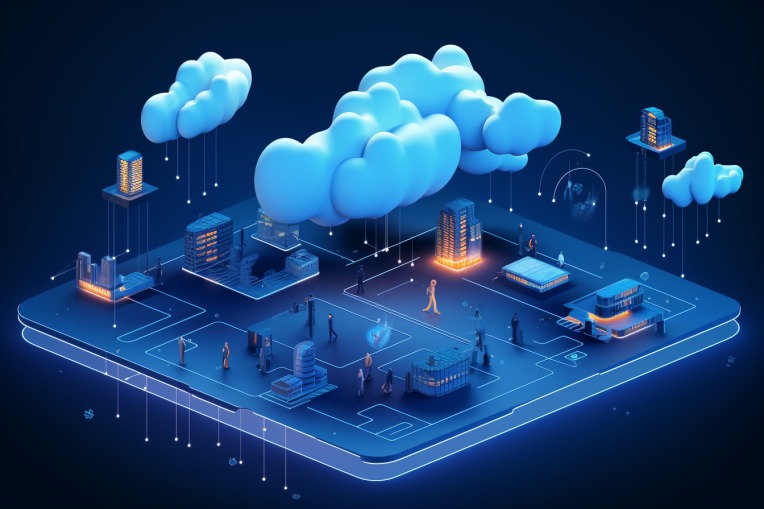Cloud computing has become a cornerstone of modern business operations, and it continues to evolve rapidly. This article explores the emerging technologies and their impact on businesses in the world of cloud computing in 2023.
Edge Computing and IoT Integration
Bringing Processing Closer
Edge computing is transforming cloud computing by bringing processing capabilities closer to where data is generated. This integration is particularly relevant for the Internet of Things (IoT), enabling real-time data analysis and decision-making at the edge. Businesses can expect improved efficiency and reduced latency in their IoT applications.
Enhanced Security
Edge computing also enhances security by reducing the need to transmit sensitive data over long distances. Businesses can process and secure data locally, minimizing the exposure to potential cyber threats during transit.
Quantum Computing and Cloud
Unleashing Computing Power
Quantum computing promises unparalleled computing power, and it’s starting to intersect with cloud computing. Businesses can harness the immense processing capabilities of quantum computers via the cloud. This will revolutionize complex simulations, data analysis, and cryptography.
Secure Communications
Quantum computing also brings new challenges, particularly in cryptography. Quantum-resistant encryption methods will become crucial to safeguard data in the quantum era.
Serverless Computing
Focus on Code, Not Infrastructure
Serverless computing abstracts the underlying infrastructure, allowing businesses to focus solely on writing and running code. This approach simplifies development, reduces operational overhead, and scales automatically based on demand.
Cost-Efficiency
Serverless computing offers cost-efficiency as businesses only pay for the actual computing resources used during code execution, eliminating the need to provision and maintain servers.
Ethical Considerations in Cloud Computing
As cloud computing becomes increasingly integral to businesses, ethical considerations arise. Data privacy, transparency in AI and machine learning algorithms, and responsible data usage are critical aspects that organizations must address.
The Future of Cloud Computing
The future of cloud computing holds immense potential. The integration of emerging technologies like artificial intelligence, blockchain, and 5G networks will further enhance cloud capabilities. Cloud-native development and containerization will also become more prevalent, enabling agile and scalable solutions.
Conclusion
Cloud computing in 2023 is characterized by the integration of emerging technologies that are reshaping how businesses operate and innovate. From edge computing and quantum computing to serverless architectures, the cloud offers a dynamic ecosystem for businesses to thrive. However, it’s essential to navigate ethical considerations to ensure responsible and secure cloud computing practices.

